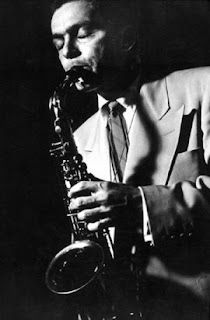BIOGRAPHY
Emma Tennant was born in London in 1937, from an
aristocratic family. She spent the Blitz in a fake gothic house in a Scottish
glen. Then she came back to London; after her school time in London, she went
to study in Oxford for some years. When she was older, he lived for some years
in Corfu, where her parents had built a house, and she wrote a book about it.
She got married four times, the last one when she was
71 to a man of 33. She also had an affair with Ted Hughes.
Although she descended from the nobility, she was a
staunch supporter of the Labour Party.
She died at 80 from a form of Alzheimer.
She worked as a travel writer for a magazine and was the
editor of Vogue.
She wrote her first novel when she was 26, The
Colour of Rain, and submitted it to the Formentor Prix. The chairman of the
jury, Alberto Moravia, said it was a horrible novel, and Emma Tennant suffered
a writer’s block for ten years. A curious detail is that she wrote it under a
pseudonym, composed with the Ouija. Later, she used again this device as a help to write her novels.
After these ten years, she started writing again and
she published a lot. Her books are usually versions of classical stories or
prequels and sequels of famous books. For example The French Daughter’s
Bastard, about the daughter of Mr Rochester (the protagonist of Jane
Eyre, by Charlotte Brontë), Pemberley, a version of Pride and
Prejudice, by Jane Austen, or Two Women of London: The Strange Case of
Ms Jekyll and Mrs Hyde. Sometimes, in her versions, she changes the
masculine characters for feminine ones and vice versa, and she adds magic and
feminism to the original narratives.
SUMMARY
Philomela was originally published in 1975 in the literary
magazine Bananas, whose editor she was.
It tells the classical myth of Philomel, or Philomela,
that appears in The Metamorphoses, by Ovid. The narrator is Procne,
Philomela’s sister. She tells how she married Tereus, from Thrace, and thus had
to move out of Athens leaving her loving sister there. Procne wasn’t very happy in
her marriage; after a while she had a son called Itylus, but she continued feeling sad. So her sister offered to go and live with her in Thrace, but, in the end, she didn’t go. Tereus, a man who only liked war, decided to go to
Athens to fetch her sister’s wife. But he came back with the bad news that Philomela was
dead. Procne was sadder and sadder; she had another child, but the children weren’t
a comfort to her. Her only entertainment was to take care of her garden: she
would have liked to show it to her sister…
After a time, a foreign slave went to see her and gave
her a cloth. The cloth was a kind of tapestry which depicted how Tereus raped
her sister, cut her tongue and locked her up in a castle.
But Procne didn’t tell anything about it to her husband and sent
two loyal slaves of hers to rescue Philomela. They got her and came
back to Thrace secretly.
When Tereus saw Philomela he was astonished, but he plucked up courage and said that he had committed a mistake and that he was
very sorry for it, that he really believed Philomela was dead. Philomela didn’t reproach him anything.
In Tereus palace, everyone respected and feared Philomela
because she was dumb, because in that time, someone who had a peculiarity was revered by the rest.
Although Procne and Philomela behave as if nothing had
happened to the latter, they were planning their revenge. Itylus was an exact replica of
his father, and thus he was to be the object of their retaliation.
When Tereus came from the war, and while he was celebrating his
victories, the sisters killed Itylus, boiled him, made a pie with his body and
gave it to Tereus in a banquet. The sisters were satisfied, but we don’t know
what happened to them once Tereus knew about his heir.
QUESTIONS
-Choose a Greek myth and tell us the story. (A list)
-Do you know any other story or tale where somebody
eats human flesh?
-Imagine you are in a dire strait and the only way to
survive is eating human flesh; would you do it?
-Sometimes the psychoanalysis recurs to the myths and
legends to explain the human behaviour. Remember the Oedipus complex. What kind
of complex could be Philomela complex? I mean: if the Oedipus complex tries to
explain the child’s jealousy towards his dad, what kind of problem could
Philomela’s story reflect?
-In the cave, the sisters said there was a dead
monster. How do you imagine this monster?
-Sometimes, when somebody has a flaw (dumbness,
blindness…), people think they have magic powers. What can be the origin of
this belief?
-Do you know more examples of love / loyalty between sisters, or brothers?
-What are the differences between the original myth and the story by Tennant?
bearable, moped, palling, lurked, hangings,
listlessly, advanced on, groves, importantly, drifwood, boulder, shift, seeped,
limpets, wince






